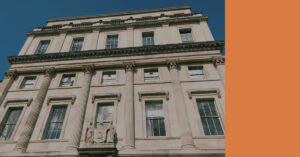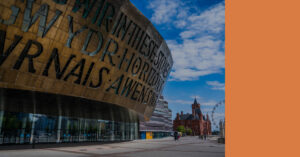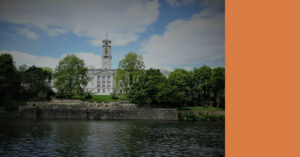This is part of a series where we share successful Medicine Personal Statements. Here’s Samah’s Graduate Entry Medicine Personal Statement as referenced in the guide and Q&A video with Ali Abdaal below. Enjoy!
Please be aware that these examples are meant purely for the sake of inspiration, and should absolutely NOT be used as a model around which to base your own personal statement. UCAS have a rather strict system that detects plagiarism.
This Personal Statement is based on the former style of the UCAS Personal Statement. Therefore, the structure is not representative of the current Personal Statement format that you will have to write in. However, the content in this example will still be beneficial for inspiring your own work.
Graduate Entry Medicine guide and Q&A with Ali Abdaal
Samah is a 3rd year Graduate Entry Medic at Cambridge University – you’ll hopefully find her advice very helpful.
Personal Statement Inspiration & Examples Articles
Pay what you want for expert Personal Statement support.
Write an impressive Personal Statement with the help of our in-depth resources and intensive crash course, all for the price that you decide.
Personal Statement Crash Course
Personal Statement Crash Course

MEDICINE MASTERY BUNDLE
Achieve Medicine Mastery in all areas of your application, including the Personal Statement
Write an impressive Personal Statement with the help of our one-to-one tuition, in-depth resources, an intensive crash course and much more.
Personal Statement Crash Course
Personal Statement Crash Course
Graduate Entry Medicine Personal Statement Analysis
My determination to become a doctor comes from a strong interest in cardiovascular physiology, having lost all my grandparents to heart disease. Focussing on physiological systems and pharmacology in my degree, I have learnt to appreciate the depth of knowledge required to treat patients. Volunteering has fuelled my enthusiasm for caring for others whilst shadowing placements have given me a grasp of a doctor’s life and reinforced my commitment to medicine.
I witnessed the challenges doctors face delivering difficult news, such as when a couple struggling to conceive received the diagnosis of polycystic ovaries. The GP’s approach in dealing with the patient’s concerns showed me the importance of empathy and patient autonomy as he outlined treatment options. Observing orthopaedic surgeries exemplified the need for communication and teamwork in a multi-disciplinary team. I was inspired by the surgeon’s ability to make important decisions during surgery, a high-pressure environment, to reduce post-operative complications. Attending teaching sessions for junior doctors and the monthly Morbidity and Mortality review helped me understand how essential continuous learning is for doctors to stay abreast of medical advances and to minimise errors in patient care. By conversing with junior doctors, I learnt about the stresses of working long hours and rewarding aspects like discharging successfully treated patients. The varied nature of medical cases encountered and the range of roles a doctor’s job includes particularly attracted me.
Due to my interest in the complex pathogenesis of cardiac failure, I explored the academic basis for medical research through an optional dissertation on endogenous cardiotonic steroids by critically evaluating evidence for two conflicting views on their mechanism of action. I also organised a laboratory internship across two summers to research their role in uraemic cardiomyopathy to gain a deeper understanding. My research gave me insight into potential new therapies to treat the condition, highlighting how current research can translate into medical advances. This has excited and motivated me to pursue an academic career in medicine. It demonstrated the need for both constant improvement of existing therapies and innovation of new treatments to better practice patient beneficence.
As Team Leader for the Bedside Play Volunteers scheme in a children’s hospital, I have built my leadership skills, coordinating volunteer shifts and dealing with issues like low resources by improvising with new activities. For many years I have volunteered at the Alzheimer’s Society’s annual Memory Walk in memory of my grandmother. Supporting my local community of Alzheimer’s patients at monthly cafés has been rewarding as I can really connect with them. This has helped me develop patience and an empathetic manner. I have enjoyed mentoring students as a King’s Widening Participation Student Ambassador and e-mentor. Helping others to maximise their potential has improved my communication skills and I have taken this further in my role as Peer Support Coordinator for the Biomedical Sciences Society.
My enthusiasm for keeping fit motivated me to restart KCL FITE Club to address the lack of female-only exercise classes at university. It has given me great satisfaction as President to motivate a large committee, supporting them in their new roles. I find baking therapeutic and bake for charity events, including organising the annual Charity Week Bakeoff. Passing the King’s Leadership Award has allowed me to develop my leadership, teamwork and communication skills. I have learnt to use efficient time management skills to balance these activities with my degree.
My work experience and volunteering have strengthened my commitment to this intellectually challenging, yet highly rewarding career. I believe I have the academic aptitude, enthusiasm and motivation to become a doctor whilst contributing to medical research.
Want to check out even more Personal Statement resources?
Check out our Free Personal Statement Resources page, where you’ll find a ton of help to get you started. Our top guides to check out include:

MEDICINE MASTERY BUNDLE
Looking for Personal Statement support?
We’ll do you one better! The Medicine Mastery Bundle supports you through your Personal Statement, UCAT and Interview with 30+ hours of 1-1 tuition and a full suite of resources and features.
Personal Statement Work Book
Personal Statement Workbook
Want more expert Personal Statement support?
Pay What You Want for expert Personal Statement guidance from 6med, including comprehensive resources and access to an intensive crash course.
Personal Statement Work Book
Personal Statement Workbook





